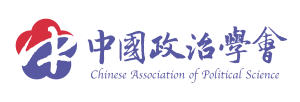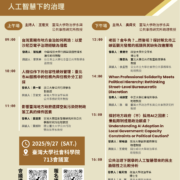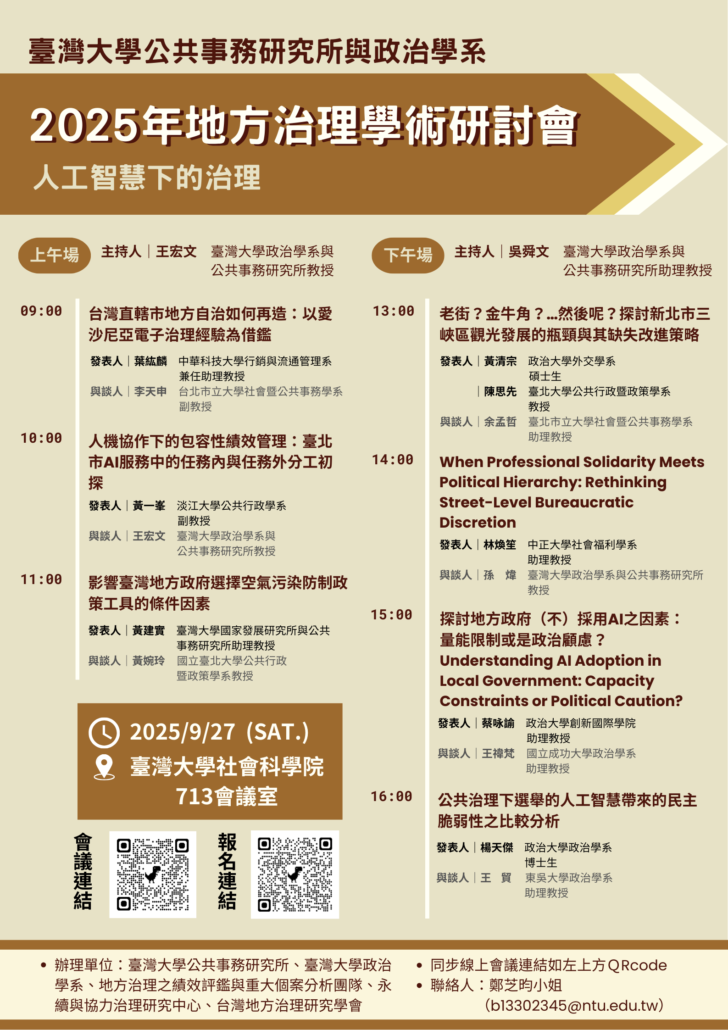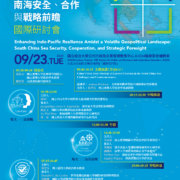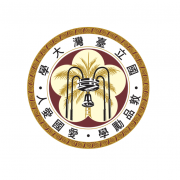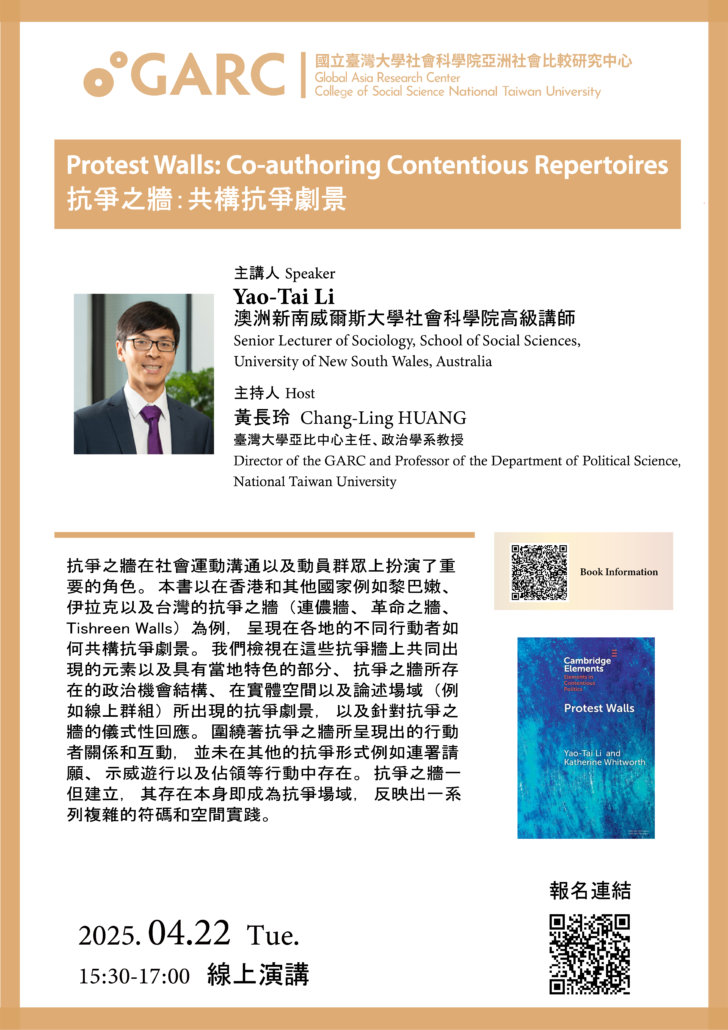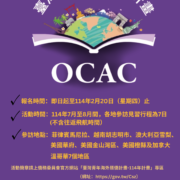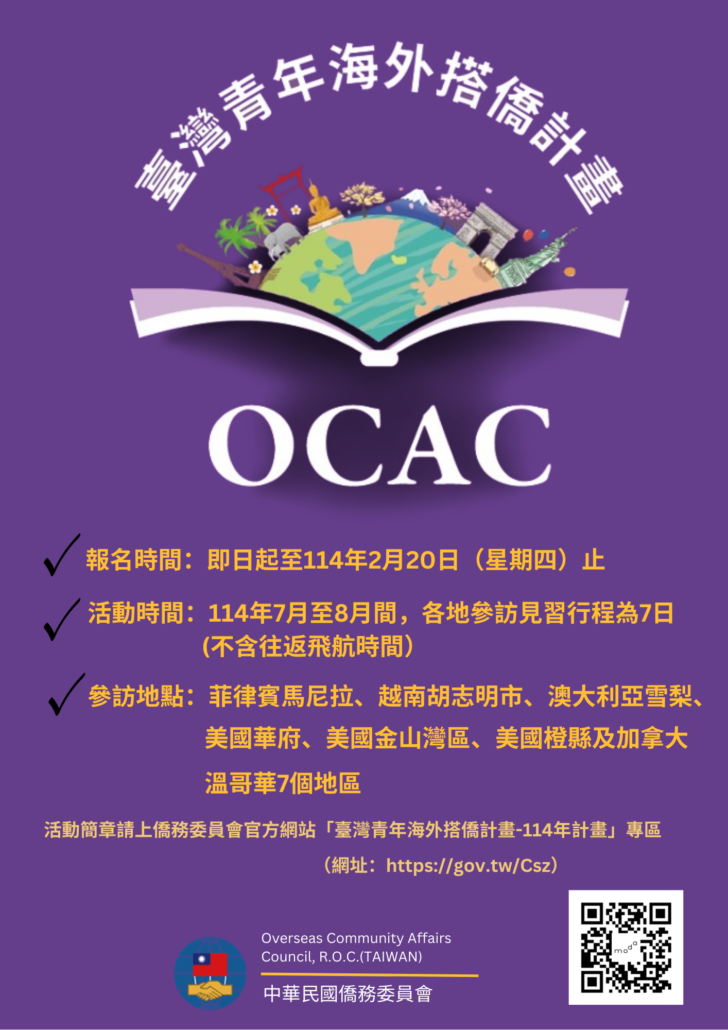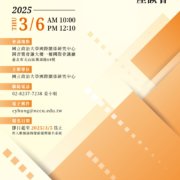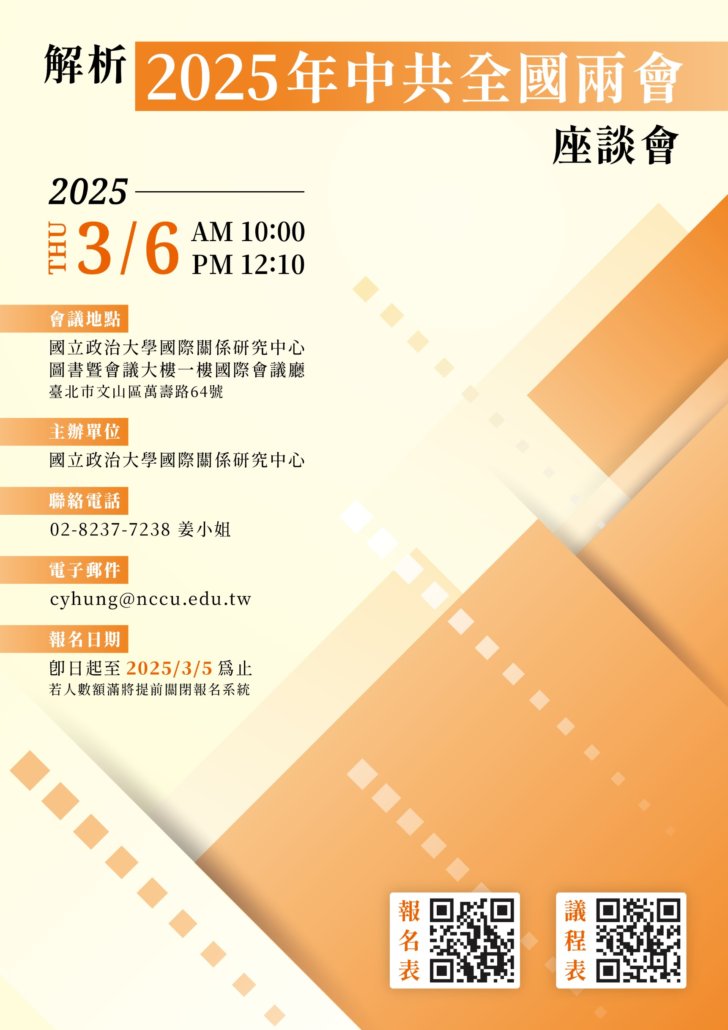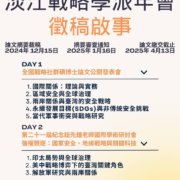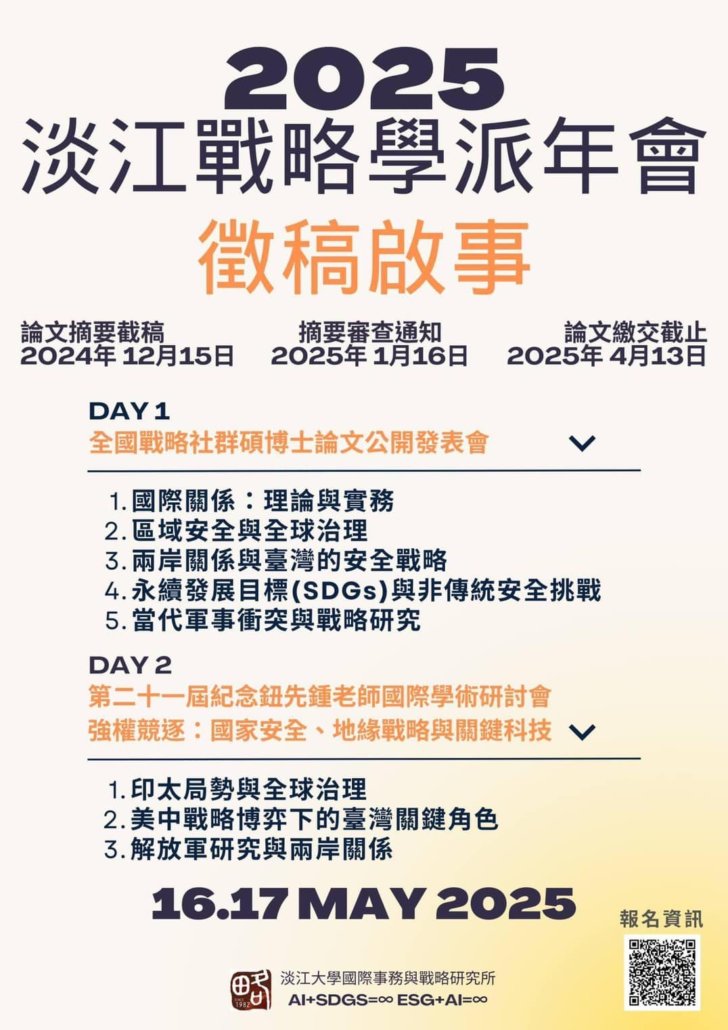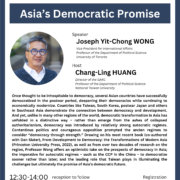【代公告】12/9 (二) 14:00-15:30 國家重點領域國際合作聯盟*臺大社科院全球民主研究講座
UAAT*NTUCOSS Lecture on Global Democratic Study
國家重點領域國際合作聯盟*臺大社科院全球民主研究講座
**註冊 Registration:
https://forms.gle/HajU7ZWbywuVm5Je8
無約束的未來世界秩序:對民主制衡的攻擊與對美國全球領導地位的意涵
The Unconstrained Future of World Order: The Assault on Democratic Constraint and Implications for U.S. Global Leadership
**時間 Time :
2025 年 12 月 9 日星期二 14:00-15:30
2025. 12. 09. Tue 14:00-15:30
**地點 Venue:
臺大社科院梁國樹國際會議廳
Liang Kuo Shu International Conference Hall, NTU College of Social Sciences
**特邀講者 Keynote Speaker
蘇珊‧海德教授
Professor Susan Hyde
Kernan Robson Professor of Political Science, UC Berkeley
美國加州大學柏克萊分校政治學系講座教授
蘇珊・海德教授是一位政治學者,其研究關注民主面臨的威脅、政體類型在國際事務中的角色,以及國際因素如何影響主權國家的國內政治,特別是在威權體制與民主轉型國家中。她以開創性的國際選舉監察研究聞名,探討國際選舉觀察如何演變為促進民主的重要工具─部分原因正是因為其紀錄並不完美。
海德的重要著作《偽民主者的兩難》(The Pseudo-Democrat’s Dilemma) 指出,專制領導人如何策略性地採用民主制度並邀請國際觀察團,以提升自身的正當性—但這樣的舉措往往帶來出乎意料的後果。她更廣泛的研究主題包括國際規範的擴散、選舉操弄與民主問責、國內與國際政治的互動,以及實地實驗研究方法的應用。
作為民主推廣與國際政治制度的權威學者,海德現任加州大學柏克萊分校政治學系教授,亦為「治理與政治中的實證研究網絡」(Evidence in Governance and Politics, EGAP)的創始成員與前任執行主任。她曾擔任多個頂尖政治學期刊的編輯委員,並曾在布魯金斯學會(Brookings Institution)及普林斯頓大學尼豪斯全球化與治理中心(Niehaus Center for Globalization and Governance)擔任駐校學者。
Professor Susan D. Hyde is a political scientist whose research examines threats to democracy, the role of regime type in international affairs, and international influences on the domestic politics of sovereign states, particularly in authoritarian regimes and transitional democracies. She is best known for her pioneering work on international election monitoring, which explores how international election observation has evolved into a powerful tool for promoting democracy in part because of its imperfect track record.
Hyde’s influential book The Pseudo-Democrat’s Dilemma demonstrated how autocratic leaders strategically adopt democratic institutions and invite international observers to bolster their credibility—often with unintended consequences. Her broader research investigates the spread of international norms, electoral manipulation and democratic accountability, how domestic and international politics interact, and field experimental research models.
An expert on democracy promotion and international political institutions, Hyde is a professor in the Department of Political Science at the University of California, Berkeley, and a founding member and former elected Executive Director of the Evidence in Governance and Politics (EGAP) research network. She has served on editorial boards of leading political science journals and has been a residential scholar at the Brookings Institution and Princeton’s Niehaus Center for Globalization and Governance.
**主辦單位 Organizers:
國家重點領域國際合作領盟創新課程與人才培育計畫 University Academic Alliance in Taiwan
國立臺灣大學社會科學院 College of Social Sciences, National Taiwan University
臺大胡佛東亞民主研究中心 Hu Fu Center for East Asia Democratic Studies, National Taiwan University
**協辦單位:
臺大台灣韌性社會研究中心 Taiwan Social Resilience Research Center, National Taiwan University
國立臺灣大學政治學系 Department of Political Science, National Taiwan University
*活動全程以英語進行,不另提供同步翻譯*
*The official language of the event is English; no interpretation will be provided.*
